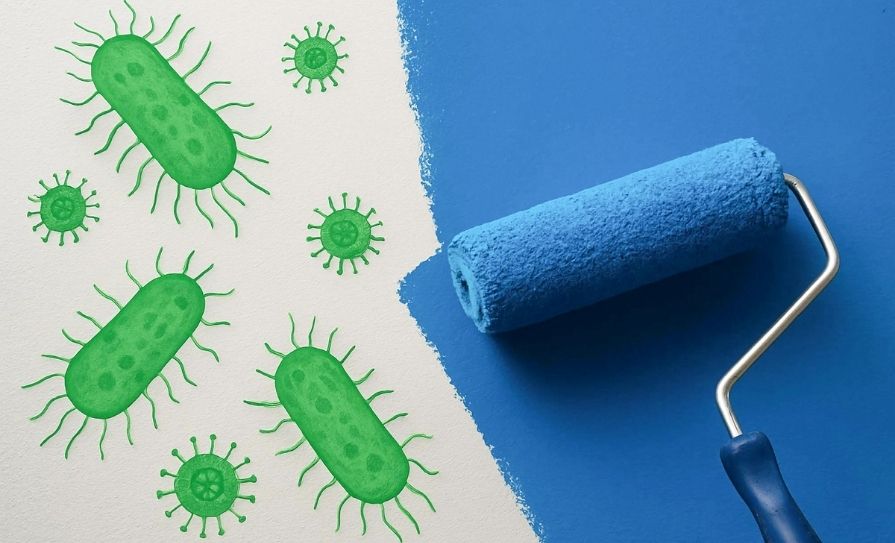A bacteria-killing coating created by scientists has been used in trials of a new paint that can be applied to a range of surfaces to effectively kill bacteria and viruses, including difficult-to-kill species such as MRSA, flu, and Covid-19.
Scientists at the University of Nottingham’s School of Pharmacy have trialled a new paint-on resin product that incorporates bacteria-killing chlorhexidine, which is often used by dentists to treat mouth infections and for pre-surgical cleaning.
The team have worked with industry to create a prototype antimicrobial paint using this new material and have found it effectively activates when dried to kill a range of pathogens. The findings of a new study have been published recently in Scientific Reports.
The new paint can be applied to a range of plastic and hard non-porous surfaces to provide an antimicrobial coating. As well as hospital and other healthcare settings, the paint can be used on any non-porous surface and the team are also investigating its use in the transport and aerospace industry.
Surfaces can act as a reservoir of bacteria, especially in medical settings, from hospital beds to toilet seats, as well as other frequently-touched surfaces in public spaces, such as aeroplanes across the aerospace industry in the manufacture of seats and tray tables. Some microbial species can survive despite enhanced cleaning regimens. In hospital, this can lead to an increased risk of patients getting infections whilst in care, who then need antibiotic treatment. These micro-organisms can survive and remain infectious on abiotic surfaces for extended periods, sometimes up to several months.
Dr Felicity de Cogan, Associate Professor in Pharmaceutical Science of Biological Medicines, led the research. She said: “It’s hugely exciting to see this research being applied in a practical way.
“In our initial research, we incorporated the disinfectant into the polymer to create a new antimicrobial paint, which has excellent efficacy; it also doesn’t spread into the environment or ‘leach’ from the surface when touched.
“The new study showed clearly that surfaces with this paint applied had no bacteria and as soon as it dries, it is active. By adding this to paint, we can create an effective bacteria-killing coating that is easy to apply and cost-effective.”
The scientists have worked with Indestructible Paint, manufacturers of specialist, high-performance coatings for a wide range of industries, including aviation, rail and industrial.
Dr de Cogan continued: “As the paint is widely used as it is a versatile, cheap and durable material, it can be applied to any surface. These plastic and metal surfaces found widely in public spaces do have drawbacks. Research has shown that contaminated surfaces can act as a reservoir of antimicrobial resistance genes, encouraging the spread of antimicrobial resistance across bacterial species through horizontal gene transfer despite deep- cleaning practices. It is paramount that new technologies such as this antimicrobial paint are developed to prevent the spread of pathogenic microorganisms to vulnerable patients and address the ever-increasing threat of antimicrobial resistance.”







